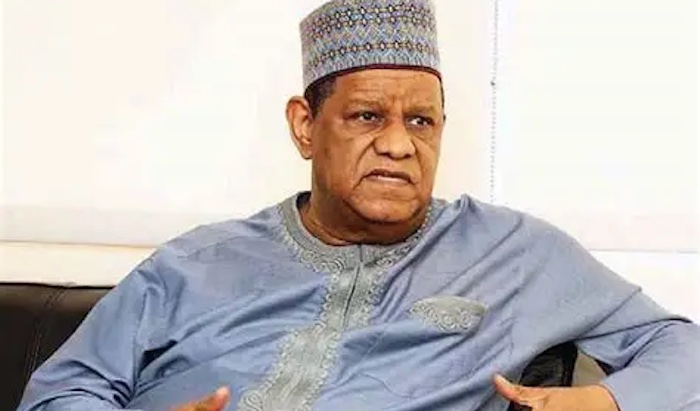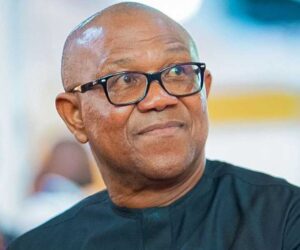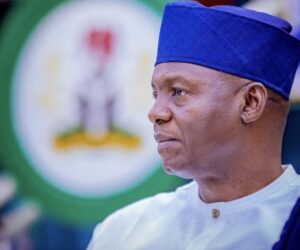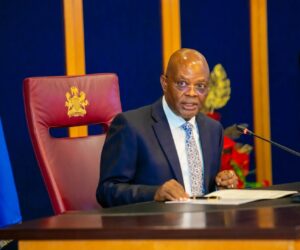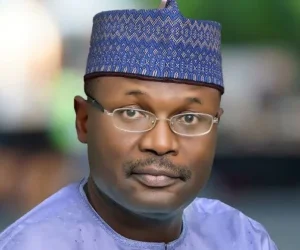Former Managing Director of FSB International Bank Plc and former Peoples Democratic Party (PDP) presidential aspirant, Mohammed Hayatudeen, has called for substantial clarity in the electoral timetable and registration of political associations that meet the criteria for registration as political parties well ahead of time, so they do not suffer disadvantages by reason of late registration.
Hayatudeen emphasised the need to learn from past technological glitches and conduct future elections based on global best practices to ensure wise and informed decisions by the voting public.
Hayatudeen made the call on Tuesday in Abuja at the formal presentation of two books authored by former Director-General of Nigerian Maritime Administration and Safety Agency (NIMASA), Dr. Dakuku Peterside, titled, “Beneath the Surface,” and “Leading In A Storm.”
The former presidential aspirant, who was Chairman of the occasion, commended Dakuku, saying the books are not just literary works, but instruments of national rebirth. He added the books challenged everyone to reflect, reimagine, and recommit to service, justice, accountability, and resilience.
Hayatudeen said Nigeria stood today at the cusp of a major global transition, which would take a long time to resolve.
According to him, “As a nation and a continent, we can choose to lead from the front by actively participating in reshaping the contours of this emerging world, or we can choose to be bystanders and, hence, get our future written for us by other nations.
“It is my profound belief that we must seize this moment. Dr Peterside could not have done a better service to society by releasing ‘Leading in a Storm’ at this propitious moment in history.”
He said while the country had made undeniable progress, it also carried the weight of unfulfilled promises.
Hayatudeen stated, “It is noteworthy that we marked 25 years of uninterrupted democratic governance in May 2025. Naturally, this is a good time to take stock. How well we have fared all these years is a function of the efficacy of leadership, governance, and institutions.”
He stressed the importance of state governance and the need to bring trust back to the job of governance.
Hayatudeen also highlighted the role of the president, governor, and local government chairmen, stating that heads of local government areas must take the lead by setting a strong tone through their words and deeds.
He added that the leader needed to rebuild trust with the people by offering a credible and durable programme for revitalising and transforming society.
The former presidential aspirant said as the 2027 elections approached, those seeking to contest should critique the record of incumbents, supported by evidence-based research, and provide a robust agenda or manifesto to convince the electorate of the superiority of their programmes vis-a-vis those of the incumbents.
Hayatudeen added, “As we march forward in this nascent democracy, there is a lot more we can do to strengthen governance and public institutions, without which this journey will be a road to nowhere.
“As we approach 2027, we need to create a climate conducive to the conduct of credible, free, and fair elections.
“Incumbent elective office holders are enjoined to render an account of their stewardship, defend their record, and clearly justify the need for seeking another mandate.
“Members of the opposition, who want to vie for elective office, should thoroughly do their homework, critique the record of incumbents supported by evidence-based research and provide a robust and practical blueprint to convince the electorate of the superiority of their programs, vis-à-vis their opponents.
“The electoral umpire should bring substantial clarity to the electoral timetable; ensure it registers political associations that have met the criteria for registration as political parties well ahead of time so they do not suffer any disadvantages by reason of late registration.
“More importantly, it should draw profound lessons from the mishap and technological glitches of previous election cycles and conduct the forthcoming elections based on global best practices. The voting public is enjoined to make wise and informed decisions at the ballot box.”
Chairman, THISDAY Editorial Board, Olusegun Adeniyi, while reviewing one of the books, said in an era when social media had democratised public commentary to the point of cacophony, “Beneath the Surface: Essays on Nigeria’s Chequered Journey,” arrived as a sobering reminder that informed analysis still mattered.
Adeniyi stated that the book, a collection of 70 essays, spanning a four-year period between 2020 and 2024, chronicled a nation perpetually teetering between promise and peril.
Adeniyi stressed that it was a collection by someone who had a good idea of what he was talking about.
He emphasised that Dakuku had inhabited the corridors of power and understood the machinery of governance in Nigeria from within.
Adeniyi said, “Indeed, what distinguishes Peterside from the army of commentators that clutter our media space is the weight of practical experience behind his observations.
“As a former Commissioner for Works in Rivers State, a one-time member of the House of Representatives, erstwhile Director-General of the Nigerian Maritime Administration and Safety Agency (NIMASA), and gubernatorial candidate of then main opposition political party, Peterside writes not as a distant critic, but one who has grappled with the very institutional dysfunctions he dissects.”
Adeniyi said the insider perspective lent credibility to his analysis, even when his conclusions sometimes made for uncomfortable reading.
According to him, the six thematic sections in the book encompasses everything; from hunger and education to electoral politics and national security and, collectively, they reflect the multidimensional nature of Nigeria’s crisis. He said Dakuku was unflinching in his diagnosis: “this is a nation in crisis.”
Adeniyi explained that in essays, like “Beyond Reactive Governance” and “Dark Chapter for the Judiciary,” Dakuku interrogated the institutional weaknesses that kept Nigeria trapped in cycles of underperformance.
He added that his treatment of the electricity conundrum, the scourge of soot in Port Harcourt, and the mystery of crude oil theft revealed a keen understanding that Nigeria’s problems were not merely technical but deeply rooted in governance deficits and moral failure.
However, Adeniyi said for all the diagnostic precision, he wished Dakuku had devoted more space to prescriptive solutions.
Reviewing the second book, “Leading In A Storm,” Dr. Linus Okorie said the author distilled five years of rigorous research into a clear and practical framework of eight key competencies that enabled leaders and institutions to perform effectively under acute pressure.
Okorie stated, “First is contextual intelligence, the ability to read situations accurately. Two, calm confidence, the composure to steady others, that composure that steadies others. Third, bringing clarity out of confusion, and strategic decision making.
“Number four, choosing wisely under pressure, clear communication, number five, using words that unify, not divide, strategic flexibility, adapting as conditions shift, coordinating team, aligning diverse actions towards accomplishing a task, facilitating learning, ensuring that we do not waste a crisis.”
Akwa Ibom State Governor, Pastor Umo Eno, commended Dakuku for his outstanding contribution to leadership, thought, and national development through the publication of his two new books.
Eno described Dakuku’s works as timely reflections on the challenges and responsibilities of leadership in a changing world. He urged leaders at all levels to embrace knowledge, humility, and service as pathways to national progress.
Chief of Defence Staff, Maj-Gen. Christopher Musa, lauded the works as “field-ready guides for a world where uncertainty is constant.”
Some of the other dignitaries that graced the occasion were former Deputy Speaker of House of Representative, Hon. Emeka Ihedioha; former Chiefs of Army staff, Tukur Buratai and AbdulRahman Dambazzau; Governor of Katsina State, Dikko Radda; former Secretary to the Government of the Federation, Boss Mustapha; Celestine Omehia; and Liyel Imoke, among others.
Adedayo Akinwale
Follow us on:

